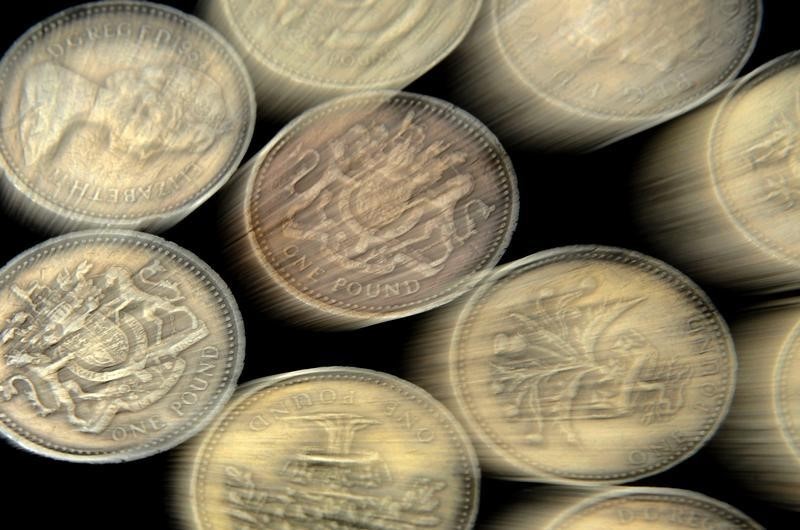By Hideyuki Sano
TOKYO (Reuters) - Sterling licked its wounds near a seven-year low against the dollar and a 2 1/2-year low versus the yen on Thursday on worries Britain may exit the European Union, while a rebound in oil prices helped stem buying in the safe-haven yen.
The British pound
Prime Minister David Cameron's announcement of a June 23 referendum on Britain's membership in the EU sparked "Brexit" fears, with polls showing the "in" and the "out" camps neck and neck.
"Looking at the market's reaction, you can tell how financial professionals don't like 'Brexit'. At maximum, uncertainty may persist until the referendum," said Masatoshi Omata, senior client manager of market trading at Resona Bank.
The concerns drove up the implied volatility
Against the yen, the currency was last at 155.97 yen (GBPJPY=R), having dipped to 154.87 the previous day, its lowest level since October 2013.
The euro also firmed to its highest level against the pound since December 2014 at 79.25 pence (EURGBP=D4), but was on the back foot against many other currencies on fears a British exit could mean an uncertain future for Europe.
The euro
It also fell to a three-year low of 122.465 yen (EURJPY=) on Wednesday, before bouncing back to 123.38 yen by early Asian trade.
The yen stepped back from highs after a rebound in oil prices helped to lift global share prices, prompting traders to wind back their buying in safe-haven assets.
The yen
Oil rallied on news of stalled loadings for the UK's North Sea oil and strong U.S. demand for gasoline, helping to lift Wall Street shares.
Still, worries about slowdown in the U.S. economy continue, with U.S. new home sales tumbling in January. Weakness in the manufacturing and energy industries may also be spreading to the service industries, which have been supporting overall growth, a survey showed.
Elsewhere, the Brazilian real

The real reversed earlier losses to end almost flat at 3.9576 to the dollar, helped by rise in oil prices.
